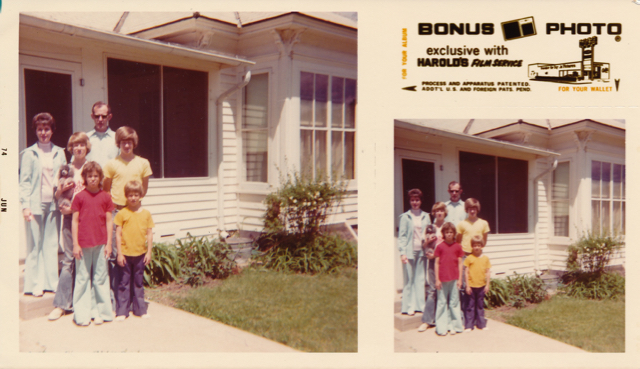
Epic Wisdom (CaD Ps 78) – Wayfarer
I will open my mouth with a parable;
I will utter hidden things, things from of old—
things we have heard and known,
things our ancestors have told us.
Psalm 78:2-3 (NIV)
My grandparent’s home in Le Mars, Iowa, was a humble little house with three small bedrooms and one bath. I grew up spending weekends there every few months, and as I got older I had opportunities to spend even more time there. It’s hard to believe it now, but when I was only about ten years old my parents would buy me a bus ticket and put me on the Greyhound bus bound for Le Mars where I would spend my spring break. Mom would tell me to sit right behind the driver so he could keep an eye on me. Wow. How times have changed.
The “west room” at Grandpa and Grandma Vander Well’s house was mostly a storage room that doubled as a guest bed when necessary. The small four-poster double bed, complete with a feather mattress, was from their wedding set and it took most of the room. One entire wall was covered, floor-to-ceiling, with shelves on which my grandparents stored the remnants of their lives. I spent hours in that bedroom exploring all of the strange, old things on those shelves and letting my imagination run free.
I have always had a thing for history. I don’t know why. It presented itself in me when I was very young. I was fascinated by the old stuff that had to be explained to me.
“Hey, Grandpa. What’s this? What does this thing do?”
As I grew, my curiosity led me to explore family history. What was fascinating was what meager little scraps of information were spoken. I have come to believe that there are multiple reasons for this. My grandparents grew up in a time when families tended to bury the family stories that they found shameful. Every family is messy, but my grandparents’ generation was particularly closed when it came to talking about such things. They were also the depression generation. Genealogy and family history are luxuries people could ill-afford when they were desperately trying to survive day-to-day and raise a family. Much of what I eventually learned about both my maternal and paternal families came late in my grandparents’ lives, or after their deaths.
Today’s chapter, Psalm 78, is an epic song in the traditional sense of the word. If you’ve actually been reading the Psalms on this chapter-a-day journey you know that they’re typically quick reads. Much like most of today’s popular music, three verses and a bridge is typically all you get. But then, every once in a while, a song stands out because it is epic. Psalm 78 is a musical epic that was written to teach children and grandchildren the story of their people. Reading was still very rare in the days when Asaph wrote the song, and most of what people learned was through oral history. Stories told by family elders around the fire at night or songs, like today’s chapter, that were sung during seasonal festivals.
Psalm 78 mostly recounts the story of the Hebrew people’s exodus out of slavery in Egypt, the 40 years of wandering in the wilderness, and the covenant relationship between God and the Hebrew people. Asaph, one of David’s temple choir directors, ends the poem alluding to the civil war between the Hebrew tribes, the fall of the northern tribes to the Assyrians, and God’s blessing of David and the southern kingdom of Judah.
In the quiet this morning, I find myself contemplating my love of history on both a large scale as well as the more intimate history of both my paternal and maternal families. I have come to realize that most people don’t care for such things, but it’s through the warts-and-all history of both family and humanity that Wisdom has taught me so much. The shame of my grandparents’ generation led them to keep the past hidden like the little remnants of their lives stuffed on the guest room shelves. I observe the shame of the emerging generation leading to the tearing down of history. I watch history being burned and buried. I imagine both of these extreme approaches to the past have existed throughout the Great Story. They wax and wane with the times.
Nevertheless, my soul aches in both cases. Asaph states quite clearly in Psalm 78 that he wants future generations to learn from the Hebrew past. As I read the chapter, I find that he wrote the epic complete with recollections of the glories and tragedies, the failures and successes, and both victories and defeats. I have met Wisdom in every one of those stories. She is present in every instance. Through each, she helps me see my current stretch of life’s road with more clarity and perspective.
I pray that I pass a little of that Wisdom along, one blog post at a time.










